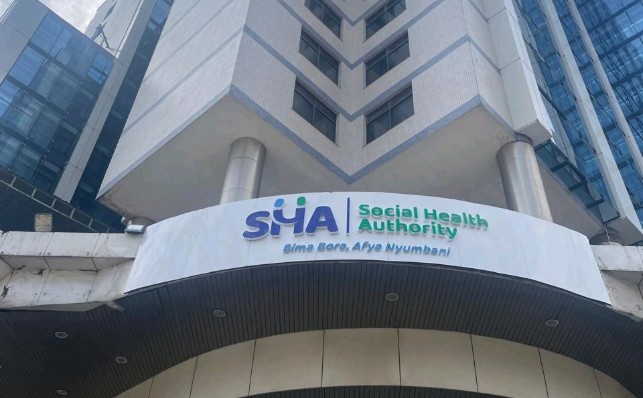Treasury, counties at odds over unremitted workers’ statutory deductions

As of June 30, 2023, counties owed NSSF Sh2.7 billion, with Sh2 billion of that amount due to accumulated penalties.
The National Treasury and county governments are poised for a confrontation over the delayed remittance of statutory deductions.
Treasury Cabinet Secretary John Mbadi has suggested that the national government takes control of salary payments to address the ongoing issue of counties failing to remit employee deductions on time.
More To Read
He said this problem also affects various ministries, departments, and agencies responsible for making these contributions.
The unremitted statutory deductions include Pay As You Earn (PAYE) taxes and National Social Security Fund (NSSF) contributions.
Mbadi noted that county governments and the defunct local authorities are the primary offenders in deducting staff benefits but not forwarding them to the Kenya Revenue Authority (KRA) and other relevant agencies.
"My suggestion would be very radical. If these agencies cannot remit the statutory deductions, then the best thing to do is to allow the national government to centralise the payment of salaries, retain the money and pay it to where it should go," the CS said.
He explained that under this proposal, the Treasury would only remit net salaries to banks while holding back the statutory deductions.
"It was assumed that paying agencies would be responsible enough to make sure that the money they deduct is also remitted. Why use part of people's salaries to pay other bills? It does not make sense at all," Mbadi said.
This proposal follows concerns about delays in processing and disbursing pension benefits for retired civil servants.
At the same time, senators have also raised issues about the unnecessary penalties and interest that counties face due to late remittances.
However, governors often blame the national government for these delays, citing issues with timely Exchequer releases to counties.
According to Treasury reports, pension schemes overseeing retirement benefits for county employees indicate that over Sh81 billion in contributions remain unremitted.
In contrast, the Council of Governors claims the debt is Sh40.5 billion as of March 2023, having offset Sh13.26 billion.
Data from the County Assets and Liabilities Committees show that the 175 defunct local authorities inherited liabilities totalling Sh9.97 billion as of March 2013.
This includes Sh5 billion owed to the Local Authorities Pensions Trust (Laptrust), Sh1.8 billion to NSSF, and Sh3.8 billion to the Local Authorities Provident Fund (Lapfund).
As of June 30, 2023, counties owed NSSF Sh2.7 billion, with Sh2 billion of that amount due to accumulated penalties.
For Lapfund, the total debt stood at Sh57.5 billion, with Sh47.7 billion representing interest and penalties from delayed remittances. Laptrust is owed Sh33.7 billion.
Additionally, data from the Controller of Budget revealed that pending bills from state corporations, state-owned enterprises, and semi-autonomous government agencies, primarily due to unremitted deductions for civil servants, surged from Sh35.8 billion the previous year to Sh78.6 billion.
This increase in unremitted statutory deductions poses risks not only to civil servants at retirement but also to the State corporations that rely on these remittances.
For KRA, the failure to collect payroll taxes can hinder its ability to meet revenue targets, especially concerning PAYE.
Top Stories Today




















